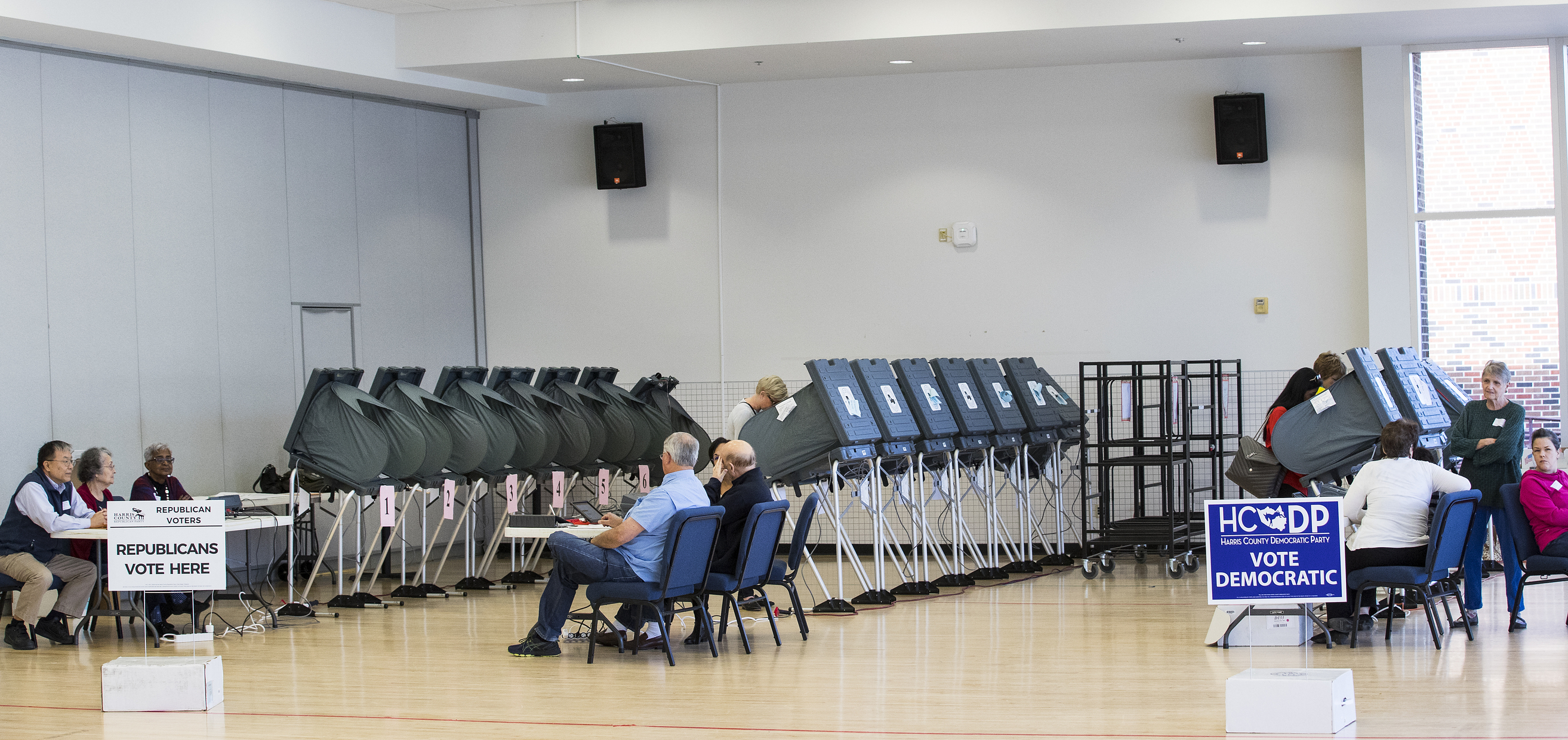
ACLU slams Texas' findings on potential non-citizen voters
AUSTIN, Texas (AP) — Civil rights groups demanded Monday that Texas officials walk back their recent suggestion that tens of thousands of non-citizens may have voted in the state since 1996, an announcement that spurred President Donald Trump to renew unsubstantiated claims of rampant voter fraud.
The ACLU, along with a dozen other voter and minority rights groups, sent state election officials a letter calling the state’s method for identifying non-citizens “deeply flawed” and warning that local officials who took voters off their rolls based on those records risk violating federal law.
The backlash came after the Texas secretary of state’s office announced Friday that 95,000 people identified as non-citizens in the state’s driver’s license and ID databases appeared to match individuals in voter registration records. About 58,000 of those people voted in at least one election, state officials said.
Trump seized on the announcement over the weekend, tweeting: “58,000 non-citizens voted in Texas, with 95,000 non-citizens registered to vote. These numbers are just the tip of the iceberg. All over the country, especially in California, voter fraud is rampant. Must be stopped. Strong voter ID!”
But on Monday, several Texas county election chiefs said they didn’t know how many of these alleged matches would hold up once they investigated.
Even Republican Texas Attorney General Ken Paxton, a Trump ally who said last week his office was ready to prosecute cases, told supporters in a fundraising email that “many of these individuals may have been naturalized before registering and voting, which makes their conduct perfectly legal.”
Nearly 16 million people in Texas are registered to vote. The potential non-citizen matches found by the state go back as far as 1996, said Sam Taylor, a spokesman for the Texas secretary of state’s office.
Taylor said Monday that his office used “our strongest possible matching criteria to make sure each of the matches was the same person.” He said that although county election chiefs were instructed Friday in a written advisory to treat the names as “WEAK matches” while they investigate, Taylor said it did not “mean the criteria used to match the names was weak.”
But voting rights groups remain skeptical about the list, which has not been made public.
“The methodology your office apparently employed to identify such voters looks deeply flawed, and its origins and intent are highly suspect,” the letter reads.
Lisa Wise, the election administer in El Paso County along the U.S.-Mexico border, said she received a list of 4,100 potential non-citizens. She said her office would investigate, but that after a first scan she could tell all of the names wouldn’t hold up.
Wise said that at naturalization ceremonies for new U.S. citizens, her office registers between 150 and 200 to people alone.
“Anything is possible,” she said. “But I can tell just from our list, and I don’t know what anyone else’s looks like, but I can tell that universe is going to continue to shrink.”
___
Follow Paul J. Weber on Twitter: www.twitter.com/pauljweber
The Western Journal has not reviewed this Associated Press story prior to publication. Therefore, it may contain editorial bias or may in some other way not meet our normal editorial standards. It is provided to our readers as a service from The Western Journal.
Truth and Accuracy
We are committed to truth and accuracy in all of our journalism. Read our editorial standards.
Advertise with The Western Journal and reach millions of highly engaged readers, while supporting our work. Advertise Today.












